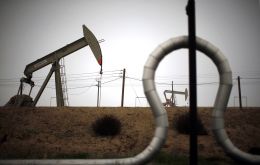MercoPress. South Atlantic News Agency
Tag: crude
-
Monday, September 9th 2019 - 09:45 UTC
OPEC+ wants to further cut output to support oil price, but admits it no longer controls the market

Top oil producers will consider fresh output cuts at a meeting this week, but analysts are doubtful they will succeed in bolstering crude prices dented by the US-China trade war.
-
Saturday, March 16th 2019 - 09:21 UTC
Venezuelan continued oil fallout presents a challenge for global markets, says IEA

A major advisor to energy producing nations has suggested that the continued fallout from Venezuela could present a “challenge” for global oil markets. The International Energy Agency (IEA) has warned that crude supplies from Venezuela are at risk of falling sharply in the midst of an electricity crisis which has paralyzed the country recently.
-
Wednesday, March 13th 2019 - 08:27 UTC
Argentina boosting natural gas output and plans pipeline to supply Buenos Aires

Argentina’s efforts to boost its natural gas output and supply are progressing through new pipeline and transport projects and auctions, moves that are expected to balance the country’s production and demand, the energy secretary said on Monday.
-
Friday, February 22nd 2019 - 09:24 UTC
Brazilian oil production challenges OPEC' attempts to balance the market and prices

While everyone is talking about how surging U.S. crude oil production will offset a large part of the ongoing OPEC/non-OPEC production cuts, there are other oil producers not taking part in the OPEC+ deal and poised to see their output jump this year.
-
Friday, December 28th 2018 - 08:55 UTC
Oil prices remain under pressure from US stockpiles and concerns with the global economy

Oil prices jumped as much as 3% on Friday to win back a chunk of the ground they lost in the previous session, but growth in U.S. crude stockpiles and ongoing concerns about the global economy kept markets under pressure.
-
Thursday, December 20th 2018 - 08:38 UTC
What’s Behind The Crash In Crude?

Oil prices crashed to new one-year lows on Tuesday, dragged down by a deepening sense of global economic gloom as well as fears of oversupply in the oil market itself.
-
Saturday, November 24th 2018 - 08:59 UTC
Oil price slumps 8% to lowest in more than a year: Crude supply grows faster than demand

Oil prices slumped up to nearly 8% to the lowest in more than a year on Friday, posting the seventh consecutive weekly loss, amid intensifying fears of a supply glut even as major producers consider cutting output. Oil supply, led by U.S. producers, is growing faster than demand and to prevent a build-up of unused fuel such as the one that emerged in 2015, the Organization of the Petroleum Exporting Countries is expected to start trimming output after a meeting on Dec. 6.
